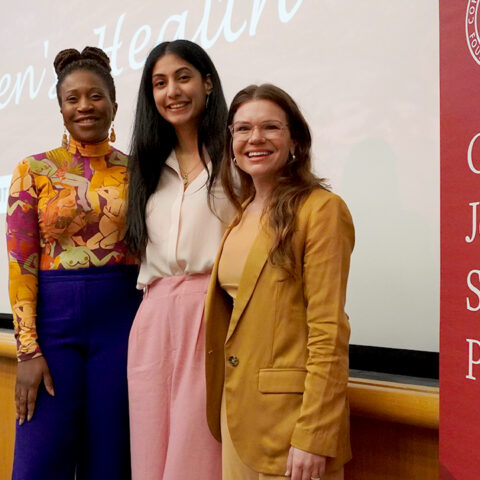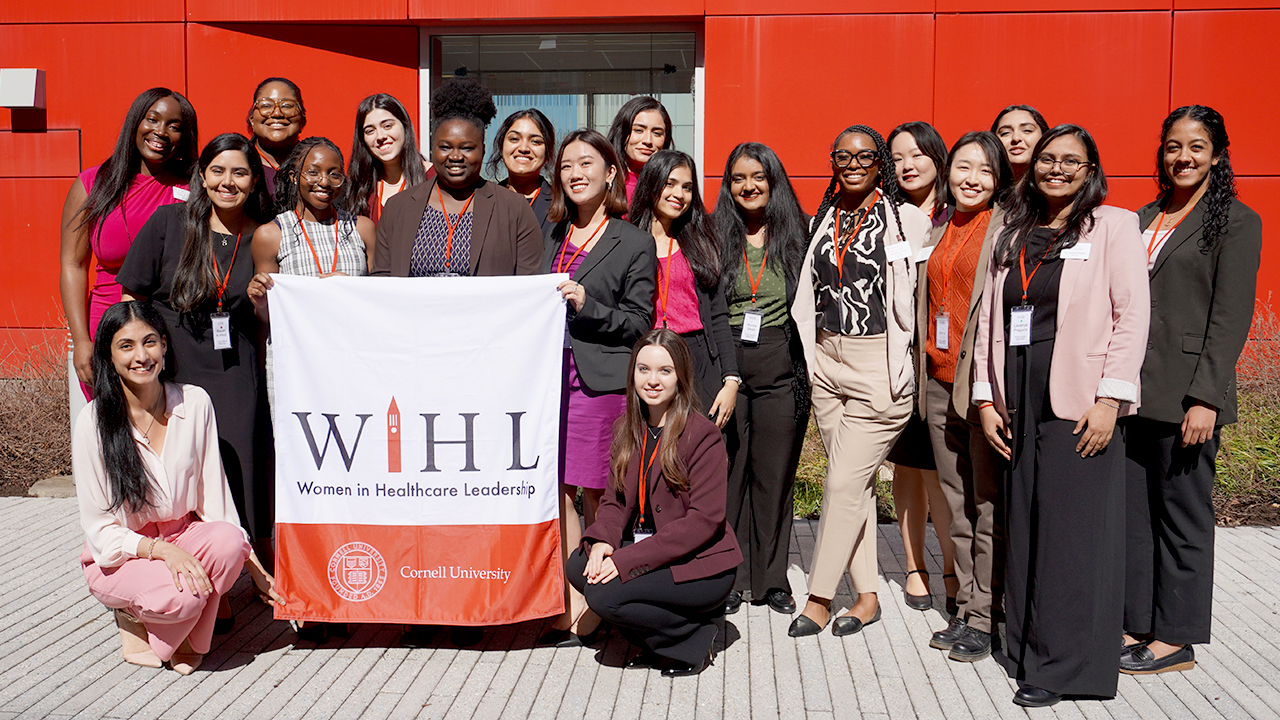Shaping the future: Women’s health at forefront of health care leadership symposium

The Women+ in Health Care Leadership Symposium organized by students in the Sloan Program in Health Administration at the Cornell Jeb E. Brooks School of Public Policy featured a diverse panel of women for their speaker series.
This year’s theme, “Leading the Way in Women’s Health,” aimed to bring together entrepreneurs dedicated to advancing women’s health and enhancing the lives of women through their work.
Keynote speakers were Dr. Onyinye Balogun and Eve McDavid, co-founders of Mission-Driven Tech, a women’s health venture in collaboration with Weill Cornell Medicine. Mission-Driven Tech is dedicated to transforming gynecologic cancer care with modern technology. The keynote detailed how Balogun and McDavid harnessed the power of entrepreneurship to revolutionize women’s health care, from addressing cervical cancer care to holistic well-being.
Panelists included Julie Eagle ’89, a health care entrepreneur and investor; Mia Farnham, principal at Steelsky Ventures; Andrea Ippilito ’06, MEng ’07, founder and CEO of SimpliFed; and Armita Jamshidi ’25, Cornell eLab participant and founder of Aunt Flo’s Kitchen. Discussions ranged from infrastructure to support working women, venture capital funding for women’s health startups, and an engaging business case study on a venture focused on helping women preserve their fertility.

The event was the ninth annual symposium organized by the Women+ in Health Care Leadership club.
“Innovation and entrepreneurship in women’s health care have often been dismissed as niche endeavors,” said club president Samyukta Singh MHA ‘24. “I wanted our attendees to realize how much market opportunity and value creation exists in women’s health by incorporating an investor from a women’s health venture capital firm into our line-up.”
Singh adds, “It is important for people to realize that better outcomes in women’s health not only benefit women but also have positive ripple effects on children, families, and communities. Ensuring better women’s health contributes to creating stronger and healthier societies. So it is a misnomer to dismiss women’s health for only benefiting 50% of the population.”
